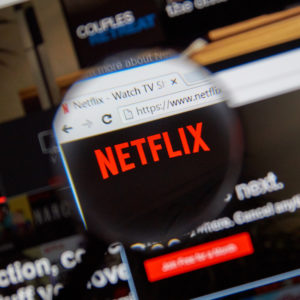President-elect Donald Trump’s picks this week for heading up his transition at the Federal Communications Commission not only confirm his anti-net neutrality bias, they also reinforce the perception his administration will crack down on Silicon Valley.
It’s been reported newly named Trump FCC transition team adviser Jeffrey Eisenach, a consultant for the telecommunications industry and visiting fellow at the American Enterprise Institute, lobbied consistently against net neutrality leading up to the FCC’s passage last year. But Eisenach’s criticism of net neutrality, which he described as “crony capitalism pure and simple” in an InsideSources op-ed in 2014, goes beyond the economics cited by rule opponents on the right.
Eisenach, who worked on both the Reagan and George W. Bush transitions and previously worked as a consultant for Verizon, testified before the Senate in 2014 that net neutrality is not about protecting consumer access to information and free speech online, as it was framed by advocates.
Rather, he argued, it was about one half of the online ecosystem — edge providers like Netflix, Google and Amazon — trying to exact free “rent” from internet service providers (ISPs) like Comcast and AT&T, while creating a significant draw on their networks to provide streaming video service to millions of consumers.
“First, net neutrality regulation cannot be justified on grounds of enhancing consumer welfare or protecting the public interest,” he told lawmakers. “Rather, it is best understood as an effort by one set of private interests to enrich itself by using the power of the state to obtain free services from another – a classic example of what economists term ‘rent seeking.'”
Those private interests chiefly reside in Silicon Valley, where Eisenach said web content providers like Netflix were getting consumers to fight their battle for them. They convinced consumers to file millions of comments to the FCC calling for rules that would ban ISPs from charging edge providers for using outsized amounts of network bandwidth, but would do nothing to keep ISPs from passing those costs on to consumers themselves.
“The rules favored by net neutrality advocates would ban or restrict payments from one type of business – ‘edge providers’ – to another type of business – broadband ISPs – while placing no limits on what ISPs charge consumers,” he later wrote. “It is easy to see why edge providers like Netflix would lobby for such rules, but difficult to understand how they would benefit consumers or serve the public interest.”
Particularly in the area of paid prioritization, or the fast and slow lane terminology proponents of the rules said would favor content chosen by ISPs and censor others, Eisenach said over-the-top video providers successfully weaponized misinformed consumer outrage to get a free lunch. In the case of Netflix, that accounts for more than 35 percent of North America’s web traffic, according to the Canada-based networking equipment company Sandvine.
“Finally, there’s the argument about fast lanes and slow lanes, or, in regulatory jargon, ‘paid prioritization,'” he wrote. “The simple reality is that edge providers like Netflix require prioritization for their services to work. It’s just the ‘paid’ part they don’t like.”
The comments indicate Eisenach is likely to advise the president-elect to choose staff for the agency that will reset the current favoritism toward Silicon Valley. That would fall in line with Trump’s other tech stances unpopular in the valley and mark a significant departure from the favor the industry received from the Obama administration.
Net neutrality and outgrowths of the rules like the FCC’s recently passed privacy rules for ISPs will undoubtedly be the subject of that scrutiny. After the election Eisenach said Trump will choose a Republican chairman likely to dismantle net neutrality. Eisenach himself reportedly may receive the chairmanship.
As a former aide at the Federal Trade Commission, the agency previously charged with regulating the privacy standards of both ISPs and edge providers, Eisenach is likely to influence a roll back of privacy rules that limit what ISPs can collect and monetize while excluding edge providers.
Alongside Eisenach, Trump also is receiving advice from Mark Jamison, director of the Public Utility Research Center (PURC) at the University of Florida and former Sprint lobbyist also opposed to net neutrality. Jamison has voiced opposition to FCC Chairman Tom Wheeler’s stalled bid to upend the cable set-top box rental marketplace with free apps — a proposal Wheeler hopes the next FCC will finish, but one that is likely sunk with Trump’s win.

